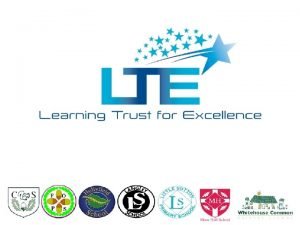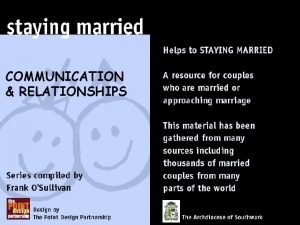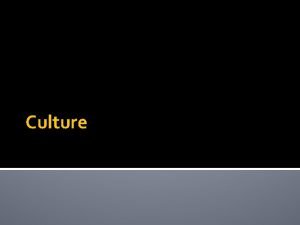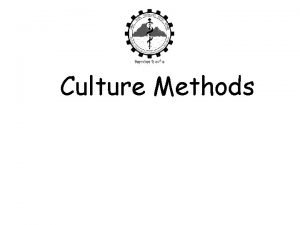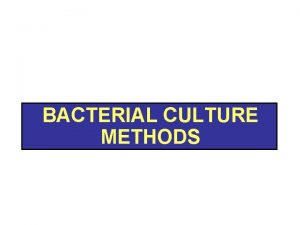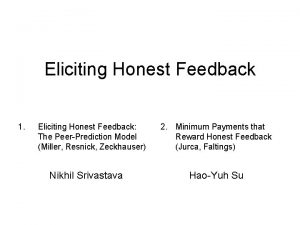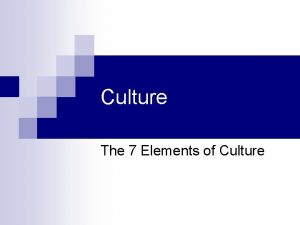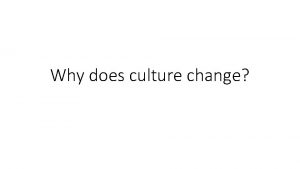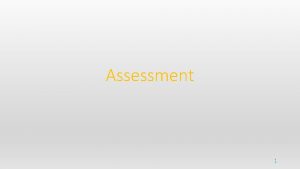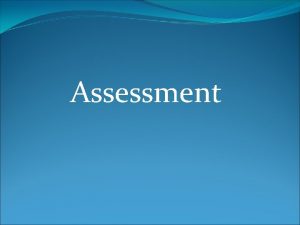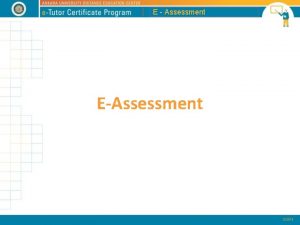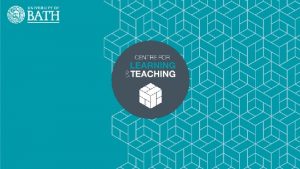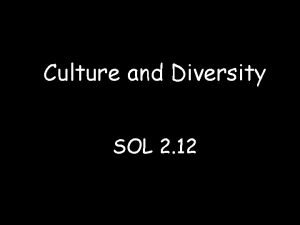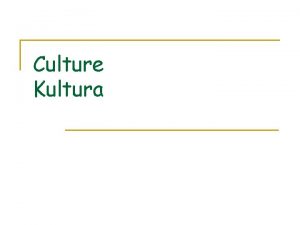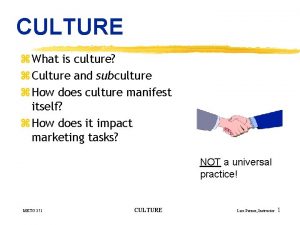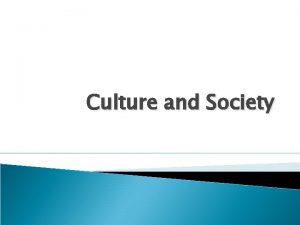Why we need an honest assessment culture and


















- Slides: 18

Why we need an honest assessment culture and how to create one. Simon Smith 05/11/16

Aims � To clarify what we mean by honest assessment culture? � Why? � To look at key features of an honest assessment model? � To explore barriers to honest assessment (I know mine do, you know yours? ) � To look at fundamental features of an honest assessment culture.

What is honest assessment? �Internal – assessment that supports learners, allows effective planning for need. Allows schools to make most effective use of its resources �External – Information that supports pupils in their transition from one phase to the next and ensures pupils make continued effective progress.

WHY?

Measuring what matters and using the outcomes to improve teaching and Intelligent Assessment learning Better Planning Better lessons means: • Improved differentiation • Improved personalisation • Targeted interventions • Better teaching • Better learning Better Lessons! How do we get the kids to work on what matters?

Empowered and valued teachers � Teachers are free to be more creative with teaching and planning because they are focused on outcomes and the ‘best way to get there’ for every child � Teachers will feel more valued as professionals as they are trusted and empowered to adapt their practice to deliver the agreed outcomes

Creates excellent teachers � Trusted, empowered, informed teachers with complete clarity on the Head Teacher’s expectations and a detailed understanding of every child is a strong foundation to develop outstanding teachers and high attaining pupils � With reflective time built in to a teacher’s week to discuss assessment, everyone learns from each other and a child has an optimum learning environment

Less marking � Marking became part of the assessment process for the child, and teachers will no longer be marking for a third party audience � There’s less of it. If the marking isn’t helping the child progress then question why you are doing it. The best way for children to make progress is if their work is corrected at the point of making the mistake. Feedback there and then, feeding forward � Marking is only one way of providing feedback – talking works too! � Less marking means more time to think about lesson planning, the approach they are going to take and the children that need attention � Teachers can adapt their lessons in real time to be more challenging or scaled back

Change in the classroom model � Teachers have a real focus on ‘what the learning is’ for specific children that day. � Teachers can target their provision where it’s needed. They can start grouping children based on their ability of a specific learning objective that day. This makes learning more personal and effective.

‘If our assessment isn’t honest the only losers are children. ’

What are the barriers to assessment? Part 1 • Understanding what it is • Not knowing how to do it • Finding Time to engage • Not prioritizing values/goals • Finding time to document • Getting support from top leadership • Not using results to inform decision-making • People who prefer anecdotal decision-making • Academic Freedom

What are the barriers to honest assessment? Part 2 Internal (Barriers to Honesty) � Performance Management � Accountability � Fear � Lack of support � Lack of moderation � Poor CPD to develop understanding of Assessment system � Targets set by Heads/SLT � Use of systems and algorithms to decide whether pupils are there or not.

What are the barriers to honest assessment? Part 3 External (Barriers for schools) � Ofsted � Fear � Raised expectations, ever changing goalposts � Threat of academisation/ floors standards/ coasting schools � DFE � LA � MAT � League tables

How do we knock down the barriers (Internally) � Remove culture of punitive accountability it doesn’t work � Give staff time to assess � Create culture that supports as well as challenges � Don’t be obsessed by targets � Talk about pupils all the time � Use data to make a difference � Build networks to secure your judgements � Create culture where moderation/scrutiny is “done with” rather than “done to” � Make it important


How do we get past the barriers (Externally) � Not a clue!!! � Ofsted Mythbusting document � Work with other schools to develop confidence in your judgements � Understand expectations � Know your children � Get teaching provision right � Focus on progress

�Does Assessment Key Questions (March 2015) it Improve Learning and Teaching? �How does it accurately tell us about pupils �How will we know? �How can we make sure it is honest? �Is it easy to use and understand? �Does it improve Learning and Teaching? �Who is the Key audience? (added May 2016 thanks @jpembroke)

Solutions � Put children and their learning at the centre of assessment � As SLT prioritise discussions about Learning � Create systems that support discussions about pupils and then use info get provision right � Moderate regularly with staff, ‘done with’, develop consensus � Get rid of punitive accountability targets � Create assessment trust � Cry when you look at the SATs papers (only joking)
 Hey bye bye
Hey bye bye Honest and open communication in school
Honest and open communication in school Open and honest communication in a relationship
Open and honest communication in a relationship Reeve character in canterbury tales
Reeve character in canterbury tales Find market n
Find market n Dont ask
Dont ask Cultural relativism definition
Cultural relativism definition Fed-batch
Fed-batch American vs indian culture
American vs indian culture Stroke culture method
Stroke culture method Folk culture and popular culture venn diagram
Folk culture and popular culture venn diagram How does popular culture diffuse
How does popular culture diffuse Site:slidetodoc.com
Site:slidetodoc.com Folk culture and popular culture venn diagram
Folk culture and popular culture venn diagram Pour plate method
Pour plate method Lawn culture
Lawn culture Surface culture deep culture and esol
Surface culture deep culture and esol The nature and aims of business
The nature and aims of business Self appraisal integrity
Self appraisal integrity

